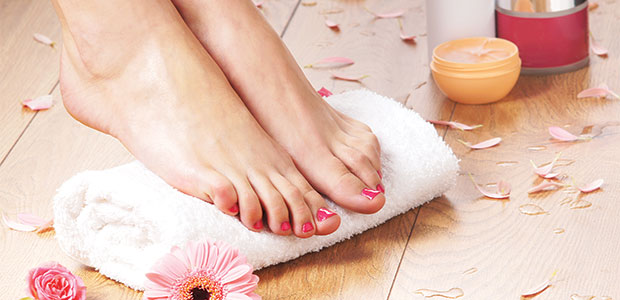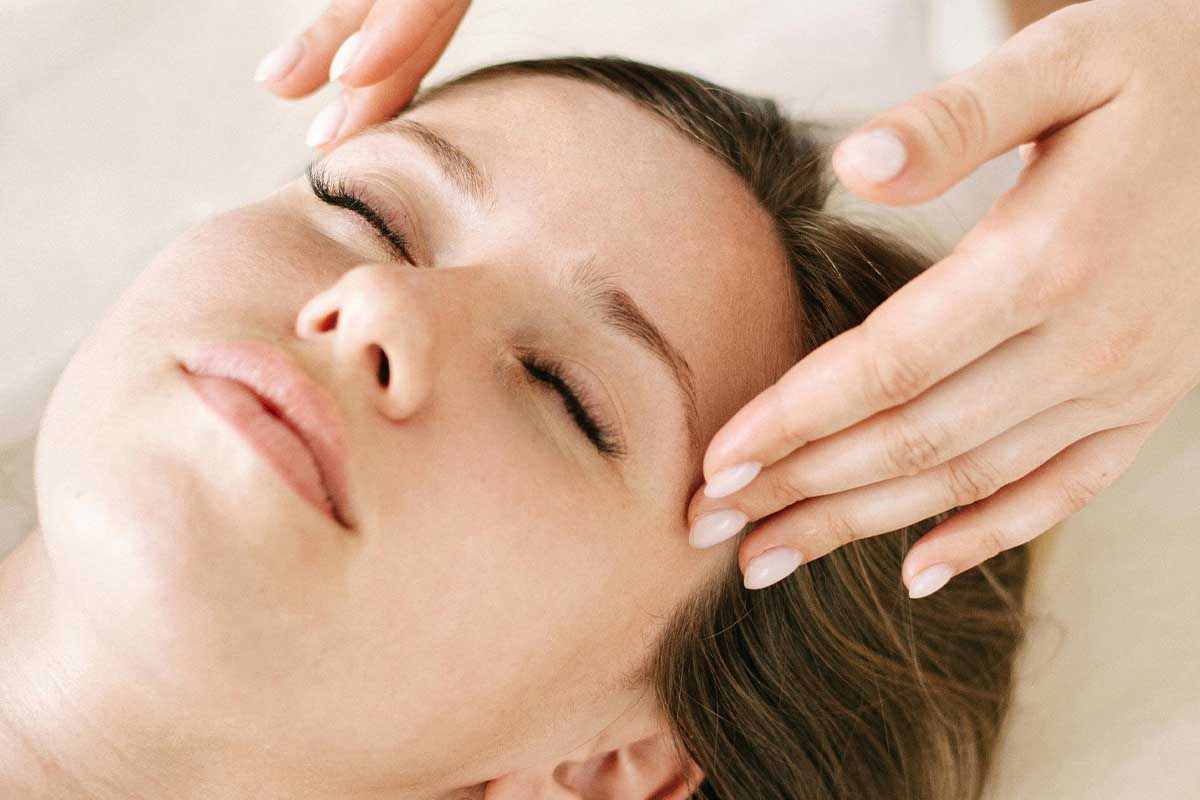Advertisement
Happy Feet
Natural foot care for holistic health

Foot care is important at busy times of the year, such as the holiday season. Between running gift-getting marathons and on-our-feet holiday hosting, our soles can get worn out and prone to soreness, swelling, and skin splitting. Yep, our feet endure considerable stress and trauma but we often don’t thank ’em for all that they do. Here’s our chance.
Foot TLC for total body health
Our feet may be the unsung heroes of our bodies. They bear our weight; maintain our balance; and get us here, there, and everywhere! Moreover, foot health is deeply related to our overall wellness.
Not only are our feet structural supports for our bodies, but research has also shown that foot treatments such as footbaths and reflexology may improve systemic health problems. Giving our feet a li’l TLC is thought to reduce stress, improve sleep quality, balance blood pressure, and alleviate overall body pain.
Stress and sleep quality
Foot therapy can be used to decrease stress and anxiety. Research has found that reflexology foot massage reduces anxiety state and perceived stress. Self-reflexology is thought to be useful in improving both psychological and stress-linked physiological conditions. These include depression, blood pressure, and immune strength. Other foot treatments such as steam footbaths have been found to improve cognition.
Furthermore, foot therapy can help us obtain better sleep. A recent meta-analysis of 40 studies found that reflexology can promote sleep and even lower incidences of fatigue.
Circulatory health
The blood flow of the feet relates to systemic circulatory health. This relationship is shown through the effect foot treatments have on the blood system. Both reflexology and foot soaks have been used to decrease blood pressure, while warm footbaths have been found to improve systemic arterial stiffness.
Pain and discomfort
Our feet are responsible for our mobility, but foot pain can lead to swelling, as well as knee and joint tenderness, which can reduce our mobility. What’s more, foot problems can be associated with pains in other parts of our bodies, such as those in the shoulders, hips, and legs. This means that treating the feet can help comfort our other muscles.
One study revealed reflexology foot massage may be used to alleviate lower back pain. This shows the interconnectedness of our bodies and how taking care of our feet can influence many other facets of our well-being.
But beyond muscular pain, we cannot forget discomfort from dry, itchy skin or fungal infections. Foot soaking, massage, moisturizing, and antifungal treatments, when needed, can help our bodies feel their best.
Foot love: Taking care of our twinkle toes
It’s easy to give our feet some TLC with these simple, natural tips.
Scrub those soles
In winter, it seems like our whole bodies could use a good ol’ fashioned scrub down. Exfoliation sloughs away dead cells, brightens the skin, removes bacteria, and improves moisturizer penetration and treatment results. This is especially important because our foot skin thickens as we age and also becomes drier.
One no-fuss way to exfoliate is with a dry brush. This involves brushing dry skin with a soft bristle brush to remove flakes and dead cells. Do this before a shower or prior to foot soaking, using circular motions and brushing toward the heart. Gently go over the skin, nails, and soles. While you can use any body brush to do this, specialized dry foot brushes often have firmer bristles for the soles of the feet.
Foot soaks: Step by step
Because the feet are our extremities, they can be prone to poor circulation. This worsens as we age, as our overall circulation also becomes impeded. This may also be why foot fungus is more common as we get older; for instance, nail fungus is often correlated to low blood flow around nails.
One way to step up our circulation is to do a warming foot soak. With the exception of those with diabetes, footbaths can increase blood movement, while also being relaxing and therapeutic. Footbaths with heat, essential oils, and salt can also help to kill foot fungus.
- Fill a clean basin or bathtub with hot water. While you want the water to be warm to promote blood flow, you do not want to burn your skin or cause discomfort, so carefully check that the temperature is comfortable before soaking your feet.
- To make the footbath even more therapeutic, you can add purifying, antifungal essences and salt. Herbs and essential oils such as oregano, cinnamon, lemon grass, and clove are natural fungicides and also give your soak a lovely aroma. Ordinary sea salt helps the absorption of these oils, so you can mix your desired oils (4 to 6 drops, maximum) with 1/4 cup (60 mL) of salt before adding it to the soak.
- Submerge both feet into the warm bath for up to 20 minutes or until the water cools. To enjoy a longer soak, add more hot water as needed to keep the foot soak warm.
Moisturizing and after-soak foot care
Moisturizing your feet after scrubbing and soaking is especially beneficial, as the skin is softened and dead skin cells have been removed, enhancing absorption. Use a natural moisturizer containing purifying essences such as peppermint and lavender to keep your feet fresh and stave off fungus and bacteria.
While doing this, gently massage your feet, kneading the soles with your thumbs. If any points on the feet are especially painful, see a professional reflexologist or acupuncturist to find out more about what this may indicate about your internal organs and overall health.
After application, take a minute to lie down and put your feet up as the moisturizer absorbs. This allows the blood to flow back toward the heart, alleviating swelling and inflammation. An added bonus? It gives you time to sit back and enjoy some much-deserved relaxation.





